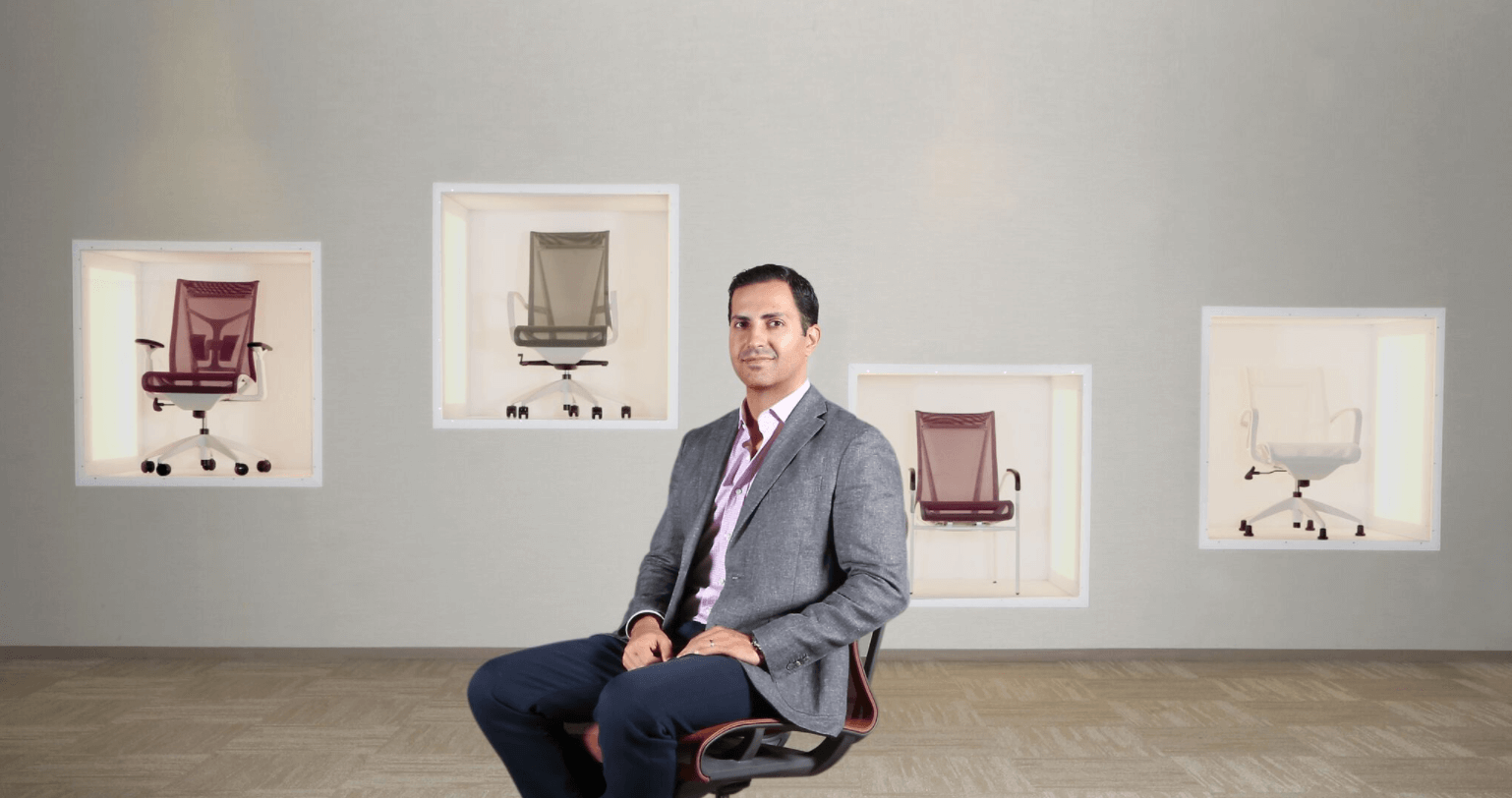Made in the USA
Time was America pumped out chairs, tables and sofas by the millions. These factories created scores of high-paying jobs that gave blue-collar workers a path to the middle class.
But manufacturers, squeezed by globalization and international trade, began fleeing the United States decades ago for China and other low-wage countries. Today, there are 7.3 million fewer manufacturing jobs in America than in 1979, according to the U.S. Bureau of Labor Statistics.
Dara Mir, B.S. ISE ’02, president of 9to5 Seating, a Hawthorne, California-based maker of customizable chairs, hopes to reverse the trend. Unlike nearly all American furniture companies, his mostly manufactures domestically. The 13-year-old company’s sales are growing at 25 percent clip annually.
Making furniture here is “achievable and cost-competitive,” said Mir, who runs 9to5 with his father, Darius Mir, the company’s CEO, and his mother, Susan Mir, the CFO. All are originally from Iran.
In 2011, 9to5 bucked convention by opening a 100,000-square-foot plant in Hawthorne. It now assembles all chairs for its North American market at the company’s LEED Gold-certified facility. (North America accounts for 90 percent of 9to5’s sales.) In 2014, it opened a third manufacturing plant in Union City, Tennessee, to make plastic injection molded components, molded foam cushions, aluminum bases and other chair components. Last year, 9to5 produced just over 300,000 chairs.
Together, the two facilities employ nearly 300 American workers, with a goal of adding 400 more within five years. 9to5 also plans to shift production from China to its Tennessee factory to increase total component manufacturing in the U.S. to 75 percent. Such moves, Mir said, put 9to5 at the forefront of reshoring efforts in the furniture industry.
“We’re bringing back manufacturing to the States,” said Mir, whom Ernst & Young selected as a “2016 Entrepreneur of the Year” for Greater Los Angeles.
By dramatically reducing outsourcing and vertically integrating nearly all operations in the U.S, 9to5 can better control production, Mir said. Its American factories feature advanced manufacturing systems such as robotic work cells for polishing aluminum, enterprise resource planning (ERP) software that manages several aspects of the business, including inventories, and automated conveyor systems — designed by Mir — that reduce chair assembly times. The company’s highly skilled workforce possesses the technical know how to operate 9to5’s increasingly complex machinery, he added.
The result: higher-quality chairs, competitive pricing and happier customers.
Mir so believes in 9to5’s domestic manufacturing that in 2014 the company launched the “Made in America Seating” line to target mass-merchandisers. Customers now include Walmart and Sam’s Club.
“I am proud to support their dedicated ‘Made in America’ social responsibility,” said Ramona Quinn, a senior vice president at Systems Source Inc., a furniture dealer based in Irvine, California. “9to5 Seating provides me with the highest-quality seating options for my clients.”
Mir, 36, long wanted to join the family business. At 7, he swept factory floors and learned about the trade literally from the ground up. His parents tried to dissuade him. Undeterred, he studied industrial and systems engineering at USC Viterbi with the goal of helping his parents improve operations, sales and profitability through automation.
“My ISE degree was the perfect balance of engineering and business,” said Mir, a diehard Trojan who serves on the USC Viterbi Emerging Leaders board. “It really taught me how to think logically and break down problems, create processes, and to be really systematic in my thinking.”
In 2002, Mir joined the family business. His timing couldn’t have been worse.
Sales had plummeted by 85 percent over a two-year period as the company’s mass-merchandise customers began buying cheaper furniture from China. In one of his first acts, Mir assisted in the closure of his family’s Long Beach, California, factory and the dismissal of 250-plus workers.
Mir and his father quickly moved to reinvent the business. Instead of relying on a few mass retailers, they decided to move into the more diversified commercial dealer market. They also went overseas, opening a wholly owned and operated factory in China in 2004.
Three years later, 9to5 turned a profit.
However, as automation increased the need for a more knowledgeable workforce, and as the wage gap with China narrowed, manufacturing domestically began to look more attractive. Ignoring industry naysayers, the Mirs opened their U.S. factories and have seen sales and earnings reach new heights.
“If you can manufacture in the United States and be cost-competitive, you have a duty to bring jobs back and manufacture in the United States,” Mir said. “As Iranian immigrants, manufacturing domestically allows us to give something back to the country that has given us so much.”





